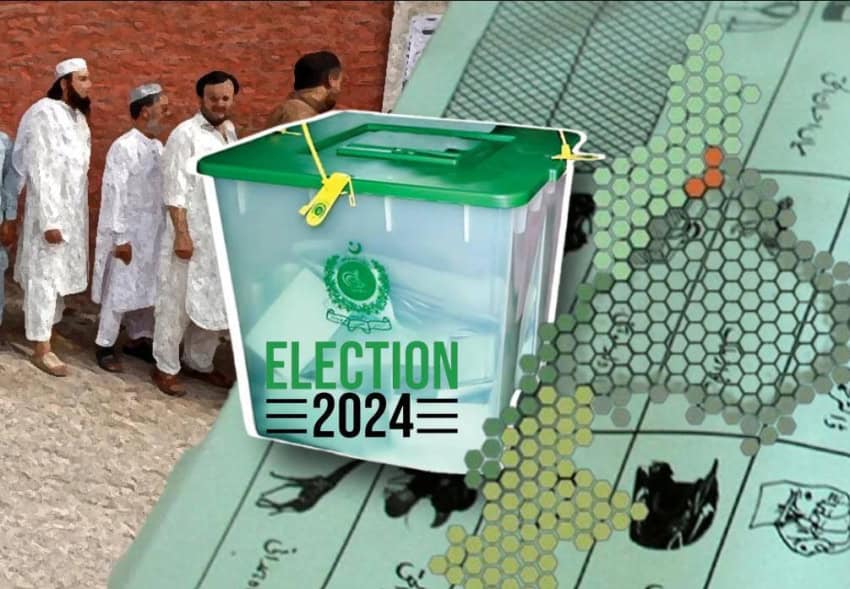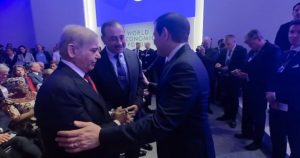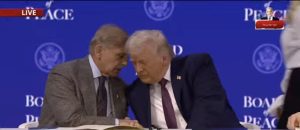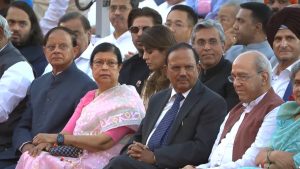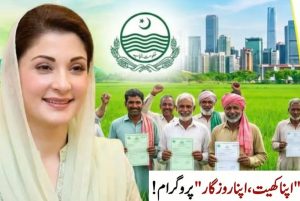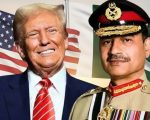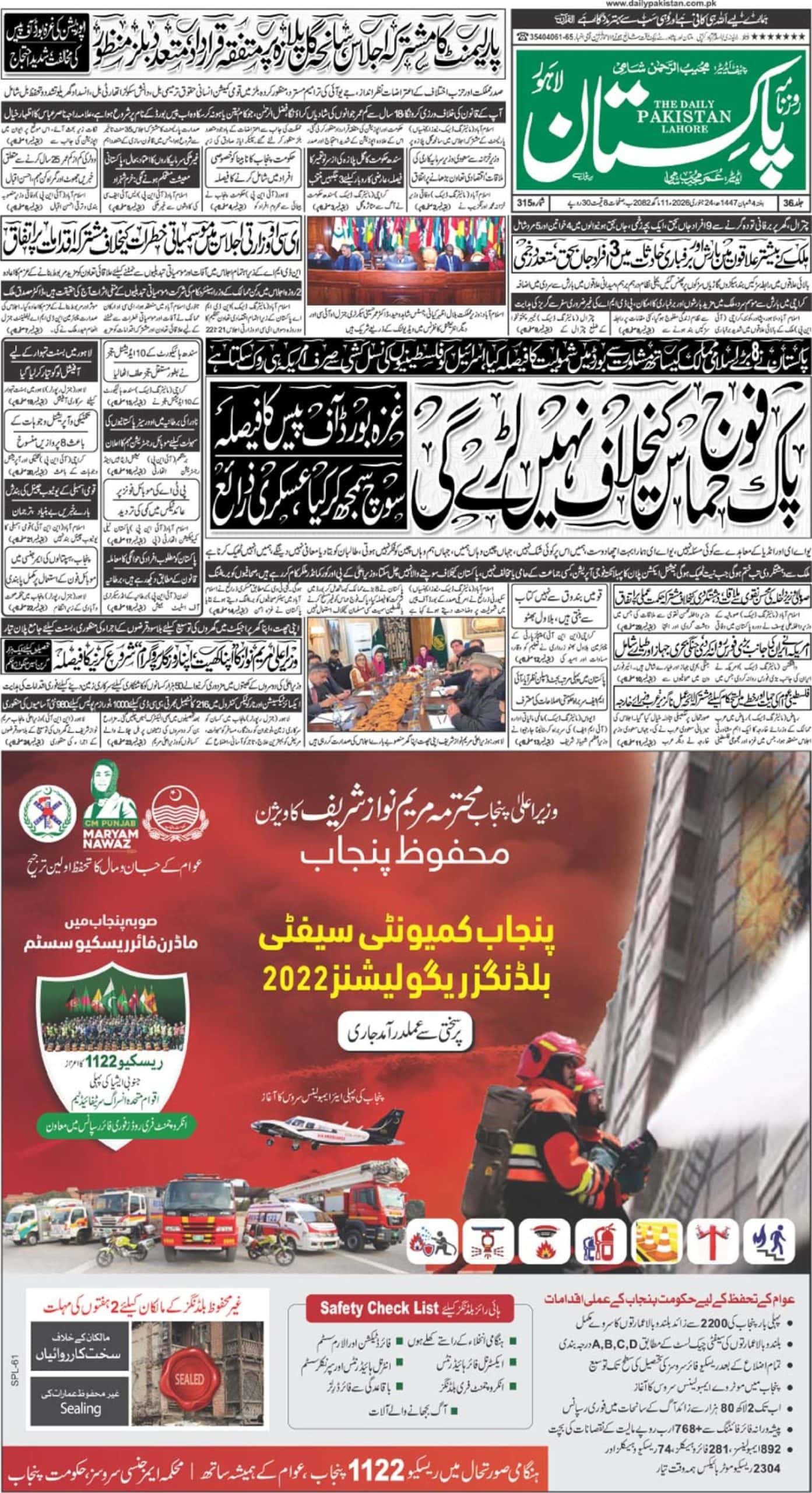The eagerly anticipated elections have unfolded in Pakistan, signifying the culmination of a significant period. Despite widespread doubts and conjectures, the groundless rumours hinting at the delay in elections have been unequivocally debunked. While caretaker administrations dutifully oversaw affairs across all four provinces and the federal level, the necessity of an elected government remained paramount for upholding democratic values and advancing national interests on the international stage.
All institutions demonstrated unwavering dedication to guaranteeing a seamless electoral process, with the judiciary and the military showing steadfast support. Chief Justice of the Supreme Court, Justice Qazi Faiz Essa, urged the Election Commission to finalize the general election date in consultation with the President of Pakistan, leading to the announcement of February 8, 2024, as the election day.
Amidst daunting challenges and looming threats, including heightened terrorism and security alerts, the electoral process pressed forward amid less-than-ideal conditions. Moreover, the resolutions advocating for the postponement of elections due to security concerns and adverse weather conditions in specific regions of Pakistan were passed in the Senate with minimal attendance by its members.
This time, the circumstances posed significant challenges for Pakistan Tehreek-e-Insaf (PTI), much like they did for the Pakistan Muslim League-N (PML-N) in the previous elections.
In that instance, Nawaz Sharif was incarcerated, whereas this time, Imran Khan, the founding chairman of PTI, encountered a parallel predicament. He was convicted in three cases just days before the elections; his wife has also been convicted, facing legal consequences alongside him.
Among the series of setbacks faced by PTI, a significant blow came with losing its case to retain its electoral symbol on technical grounds in the Supreme Court. Adding to the turmoil, its members contested the legitimacy of the intra-party elections, resulting in a verdict that exposed PTI’s inability to adhere to its constitutional principles. Nevertheless, a prevailing viewpoint advocated for extending PTI the benefit of the doubt.
The preliminary results of recently concluded electoral process are out, delineating a National Assembly characterized by a mosaic of representation, Among the 101 independent candidates securing seats, 92 are affiliated with PTI, while the remaining nine ran independently. Notably, Pakistan Muslim League-N (PML-N) emerges as the largest political party in the assembly with 75 seats, underscoring its substantial influence. Furthermore, five independent candidates have aligned themselves with PML-N, including one backed by PTI, bolstering the party’s collective strength. In addition, the Pakistan Peoples Party (PPP) commands 54 seats, solidifying its pivotal role in the political landscape. The Muttahida Qaumi Movement (MQM) has secured 17 seats, contributing to the rich diversity of perspectives and interests within the parliament.
According to Gallup Pakistan, the election results closely echo the pre-election survey findings, especially in Punjab, where the outcomes closely align with the survey predictions. Notably, the survey forecasted a 34% vote share for Pakistan Tehreek-e-Insaf (PTI), closely mirrored by its 35% vote share in the 2024 elections. Similarly, the projected 34% vote share for Pakistan Muslim League Nawaz (PML-N) is consistent with the survey’s prediction of 32%. In KPK, the Gallup survey anticipated a 45% vote share for PTI, closely resonating with the party’s actual 46% vote share. Moreover, the projected 15% vote share for Jamiat Ulema-e-Islam Fazalur Rehman Group (JUI F) is closely mirrored by the party’s 15.75% vote share in the elections. Similarly, the vote shares for PML-N and the Pakistan Peoples Party (PPPP) in KP closely paralleled the survey predictions.
As far as the turnout it concerned, according to the Free and Fair Election Network (FAFEN), the voter turnout in the 2024 General Elections stood at 48%, with male turnout reported at 52% and female voter turnout at 43%. It represents a 3% decrease in the voter turnout recorded in the 2018 General Elections. Analysis by Gallup Pakistan based on Form 47 data available on the Election Commission of Pakistan (ECP) website indicates that the highest voter turnout was observed in Punjab at 52%, while the lowest turnout was recorded in Balochistan with the ratio of 35%. Interestingly, the latest Gallup Report indicates minimal shifts in national vote shares between the last and current elections. The PTI garnered 31.8% of the votes in the previous elections, slightly dipping to 31.3% in the recent ones. Similarly, the PML N secured 24.5% of the votes in the last elections, with a marginal decrease to 23.7% in the current ones.
On the other hand, the PPPP witnessed a slight increase from 13.1% in the 2018 elections to 14% in 2024. Despite these minor variations, a comprehensive analysis reveals a remarkable stability in voter support across all parties, with their electoral fortunes closely aligning with those of previous contests. Also, the pattern of political dominance in provincial governments remained almost same, with PTI maintaining its strong grip on Khyber Pakhtunkhwa, a trend consistently observed over the past three elections. Similarly, PML N retained its stronghold in Punjab, while PPP continued to wield authority in Sindh. Meanwhile, the possibility of a coalition government emerged in Balochistan, adding a layer of complexity to the political landscape.
With all these factors at play, it becomes abundantly clear that no single party possesses a clear majority, inevitably leading to the formation of a coalition government by whichever parties manage to clinch it. In a significant development, the PML N and PPP forged a foundational agreement on political collaboration. Intensive negotiations are underway among the leading political factions to establish common ground and explore various avenues of cooperation. Despite the plethora of options being deliberated upon, consensus remains elusive, particularly concerning the appointment of the Prime Minister and the modalities of government formation. As of now, the situation remains shrouded in uncertainty, with multiple scenarios being considered. However, clarity is expected to emerge within few days or two as discussions progress.
On the flip side, firmly asserting their right to govern in both Punjab and KPK, in addition to the centre, by their claimed majority, PTI leaders exude confidence in their capacity, astutely navigating the shifting political terrain. However, it is imperative to underscore that these candidates currently stand as independent entities and must undergo a stringent process to align themselves with a political party within three days of assuming office as assembly members. Furthermore, they may face hurdles in securing reserved seats. While independent candidates have clinched victory, their journey entails navigating multiple stages to formalize their party affiliations. They lack the entitlement to reserved seats, a privilege other political factions enjoy. Another intriguing aspect is the overall vote distribution: PTI-backed independents have clinched one-third of the total votes, while the aggregate vote share of all other parties amounts to two-thirds.
In the aftermath of the elections, amid widespread allegations of electoral malpractice, it is noteworthy that some candidates have graciously accepted their defeat, reflecting a commitment to democratic principles and sportsmanship despite the prevailing challenges and controversies surrounding the electoral process. Prominent PML(N) figures, including Khawaja Saad Rafique, Javed Latif, and Rana Sanaullah, faced defeat in the elections. Notably, the leader of Jamaat-e-Islami, Sirajul Haq, has voluntarily stepped down from his position as Ameer, while Chairman of Tehreek e Istehkam e Pakistan, Jahangir Tareen, not only relinquished his post but also announced his retirement from politics altogether, Ameer Jamat Islami Karachi, Naeem ur Rehman, presents yet another example of integrity and principle. He has made it clear that despite being declared victorious, he cannot in good conscience accept his purported win, as he believes the discrepancies in Form 45 attest to his defeat. Despite PTI leaders’ confident assertion of victory on nearly 170 seats, only 18 candidates dared to challenge the results in the High Court, but the court dismissed their cases. It reiterated that adherence to the prescribed legal process, starting with the election tribunal, is paramount before seeking judicial intervention.
There were notable irregularities observed during the elections, including the shutdown of mobile services and disruptions in internet connectivity, which significantly inconvenienced the public and the elections commission, which has claimed the same reason as the prime reason for attaining results from returning officers. However, the caretaker Interior Minister, Dr Gohar Ejaz, underscored the rationale behind suspending mobile services during the polling period, stressing its paramount importance for ensuring public safety. However, despite this precautionary measure, Dr. Ejaz noted with concern that 56 violent incidents were reported on election day.
The delayed announcement of results further compounded the challenges, prompting the Election Commission to address a barrage of inquiries, which it finally responded to a day prior. The Commission emphasized that the disruption in mobile services severely hampered the coordination and transmission of election results. While comparing the 2018 and 2024 elections, he said that the first result of the 2018 elections was received at 4 am the following day, this time it was received at 2 am. Despite the obstacles, the Election Commission noted that, except for a few constituencies, the election results were finalized within one and a half days, contrasting with the three-day duration in 2018. Notably, the Commission clarified that delays did not favour or disadvantage any specific political party.
Protests have erupted in several regions of the country, disrupting public life. PTI workers staged demonstrations on the Peshawar Motorway, leading to its closure, while Lahore also witnessed several protest gatherings, adding to the unrest in the aftermath of the elections. It is paramount to underscore the importance of resolving disputes through legal avenues. Candidates who choose to pursue legal recourse, such as filing petitions, should respect the judicial process and allow the matters to be adjudicated in the appropriate tribunals and courts.
The efficacy of street protests has historically been questionable and remains so for the future, as they primarily serve to incite unrest rather than bring about meaningful change.
Amidst the post-election landscape, it is imperative for all political parties and stakeholders to recognize that Pakistan is grappling with not only political turmoil but also economic challenges, both of which are interlinked. These elections were anticipated to usher in political stability, offering a glimmer of hope. However, unless political factions can amicably reach consensus, the current predicament is likely to persist, exacerbating existing issues and creating further hurdles for the nation.
The reality remains that whichever political faction assumes power will inevitably face the daunting challenge of making difficult and potentially unpopular decisions, all in the pursuit of advancing the greater good of the nation.
However, it’s crucial to bear in mind that no single party has garnered a definitive majority in these elections. Consequently, political parties are actively involved in negotiations, forging alliances, and convening meetings to form the government.
The dust of pre-election chaos is gradually settling, revealing a semblance of clarity. In politics, certainty is elusive, and nothing is final. In the intricate landscape of politics, it’s paramount for every party to approach alliances with meticulous care, especially during tumultuous times. Ultimately, engaging in negotiations becomes indispensable to mitigate potential conflicts and pave the way for constructive collaboration.
There should be no “dead end” in politics; the notion of ‘deadlock’ is nonexistent, and every political party must internalize this crucial lesson.

